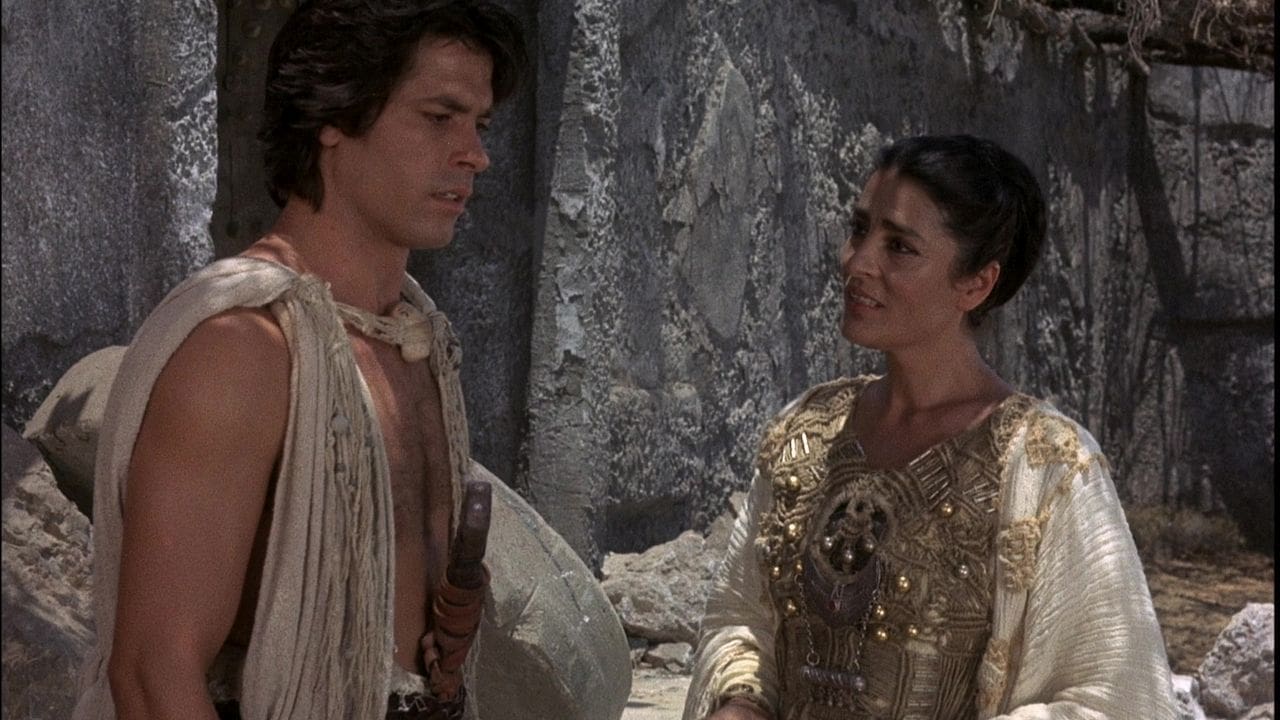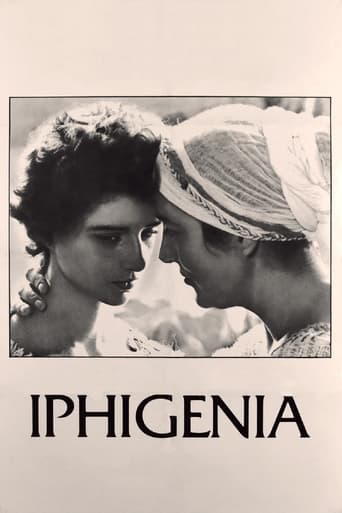lasttimeisaw
First of all, I have to give vent to my random thought about the story of Iphigenia (as in most Greek tragedies), where men predominately are vapid barbarians, blinded by belligerence, superstition and misogyny, they would prefer engaging a bloody warfare to returning home, certainly this type of story is worlds apart from my way of thinking, yet, this film adaption is a painstaking cinematic wonder to behold, not to mention Kakogiannis superb dexterity in extracting the heart-rending theatrics out of his stage but utterly dedicated cast, headlined by the legendary Irene Papas and a bracing debut performance from Papamoschou as the titular heroine represents the virtues of innocence, self-sacrifice and true grit. The third piece of Cacoyannis' Greek TRAGEDY trilogy, the other two are ELECTRA (1962) and THE Trojan WOMEN (1971), both I have yet to watch. IPHIGENIA firstly astonishes in its epic scale, its solemnity and optic grandeur is quite unparalleled for its time, and what could be more legitimate than a Greek tragedy concocted by a Greek maestro in situ? This proposition alone is alluring enough! This is a prelude of the Trojan War, Agamemnon (Kazakos) has to tough decision to make, under the oracle from Artemis, he must sacrifice her first-born child, Iphigenia, in order to atone a slip when his army accidentally slaughtered a sacred deer in a temple dedicated to Artemis, a consequence is that all his fleet is kept at bay without the aid of wind to sail while his men are growing fatigued, bored and anxious for the battle. Then Agamemnon's wife Clytemnestra (Papas) and Iphigenia are tricked to the front, under an ostensible pretext to marry Iphigenia to Achilles (Mihalopoulos), but soon the lie is debunked, can Iphigenia escapes her doom? It is a no-brainer actually because it is named "tragedy" for an obvious reason.When fate rules, individual effort cannot alter it, so what is intriguing falls on the process itself, how Clytemnestra fights wholeheartedly and desperately for saving her beloved daughter, how Achilles transitions from an outsider to swear protection for her with no regard of his own life, how Agamemnon is tormented by the guilt and grief yet he is too proud to disregard the interest of the bigger picture. But most essentially is Iphigenia's own mental progress, from a bright young bride-to-be to a designated oblation for others' sacrilege, her anticipated wedding-day turns into her last-day-on-earth, and from the initial entreatment to her final tranquil acceptance of her unfair fate. On paper, it is a role seems too challenging for Papamoschou, who is only 13-year-old at then without any acting experience, but in reality, her performance is a key element ascribed to the film's success (a Palme d'Or competitor and an Oscar nominee). Bearing an angelic appearance, she balances against histrionics her co-stars, establishes a poignant image of a martyr, St. Joan of Arc style, and never let her own innocuousness off the map, that's what we call a pathos generator.There is no question of how excellent is Papas, the Greek equivalence of Anna Magnani, her expressive face alone can be so revealing and informative, as in ZORBA THE Greek (1964), another Kakogiannis film, words are powerless in front of her presence. But here, equipped with her mother tongue, she is in her full wings to bring Clytemnestra to life, an anguished mother fights bravely from her submissive position to defend her own blood, to no avail nevertheless, she shines in every scene. A solid theatrical background benefits Kazakos greatly in rendering gravitas to Agamemnon, but compared to Papas and Papamoschou, he is rather stiff and so are Mihalopoulos and Karras (who plays Menelaus, Helen's husband). Last but not the least, two thumbs-up for Theodorakis' engaging score, percussively rollicking during the frenetic spectacles and imposingly impassioned during the central narrative. Surely, only Greeks know how to cook up an authentic feast from a Greek tragedy, highly recommended!
mirabal
I was taken to see this movie by my sister when I was only 7 years old. It's amazing how, at that early age, I was able to sympathize with the plot, the mood, the tragedy...Just now, through IMDb, I was able to find out what was the movie that had so greatly affected my childhood.

